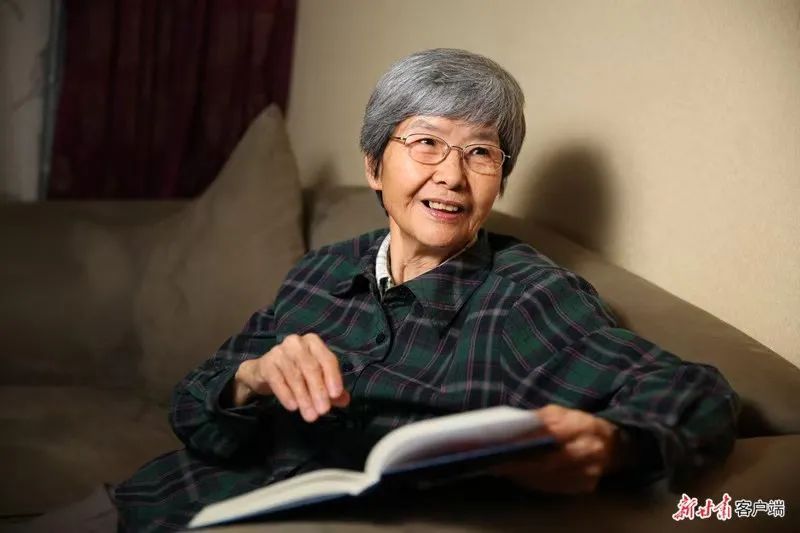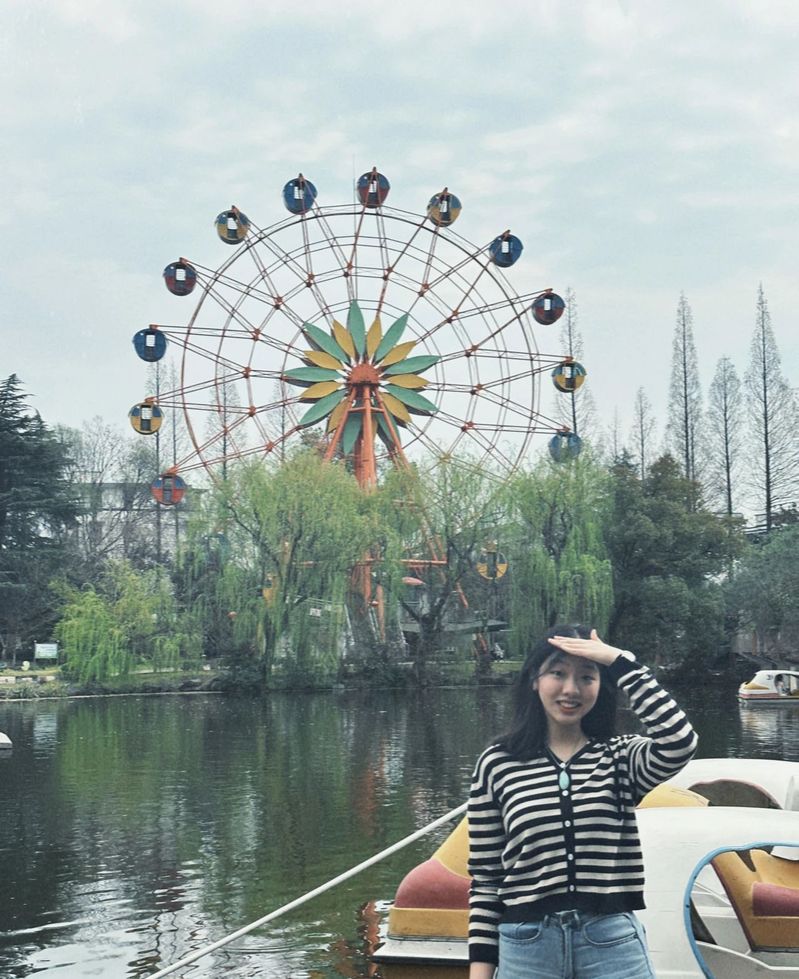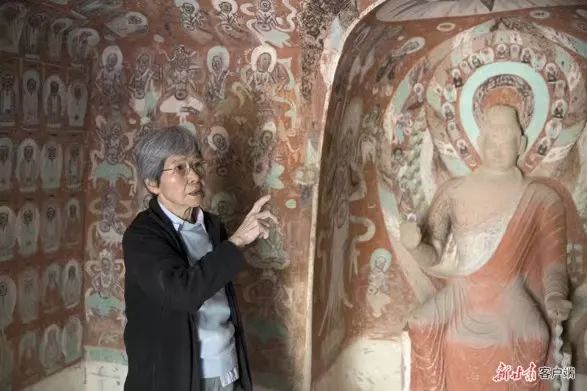樊锦诗,被誉为“敦煌女儿”,自1963年大学毕业后毅然前往敦煌莫高窟,扎根大漠五十余载,致力于石窟考古、保护与管理事业。她推动《甘肃敦煌莫高窟保护条例》的颁布实施,主持编制《敦煌莫高窟保护总体规划(2006-2025)》,使敦煌石窟保护工作走上科学化轨道。她首创“数字敦煌”理念,组织实施了敦煌莫高窟史上规模最大的综合性保护工程,并积极推动国际交流与合作,开创了中国文化遗产领域国际合作的先河。此外,她致力于敦煌文化的普及,策划组织了多次海内外敦煌艺术展览,取得了良好的社会与经济效益,同时高度重视人才培养,为敦煌石窟文物事业的科学发展奠定了坚实基础。2018年,她被授予“改革先锋”荣誉称号,成为“莫高精神”的倡导者和模范践行者。
本期节目,将由商英2306班茹敏同学来为我们介绍“敦煌女儿”——樊锦诗。

蒲公“英”说书人:
大家好,我是来自商务英语2306班的茹敏,平时喜欢追剧、旅行、打羽毛球,现任招就办助理,青年志愿者中心干事。

原文:
Fan, a Han Chinese, first trekked all the way to Dunhuang Mogao Grottoes in the middle of the desert in July 1963 shortly after graduating from college, cherishing a dream to protect the national cultural heritage, and remained there for more than 50 years. Over the past decades, she entrenched herself in the desert, as if her life and Dunhuang's had blended into one, and became known as the Daughter of Dunhuang.
Fan's devotion to archaeology, protection and management of grottoes never wavered, and she has made outstanding contributions to the cause of protecting, studying and carrying forward Dunhuang grottoes through her works.
Fan highly values protection of cultural relics and actively promotes the promulgation and implementation of Regulations on Protecting Dunhuang Mogao Grottoes in Gansu Province and Overall Planning of Protection of Dunhuang Mogao Grottoes (2006-2025) to lead the protection work of Dunhuang grottoes onto a path of scientific development
She was the first to suggest the Digital Dunhuang concept and planned and implemented the largest-ever comprehensive protection program in the history of Dunhuang Mogao Grottoes - Dunhuang Mogao Grottoes Protection and Utilization Project. She also actively promotes international exchanges and partnerships for Dunhuang grottoes and has initiated the international cooperation wave in China's cultural relics project field.
Fan is a big advocate and active promoter of popularization of the Dunhuang culture, and has helped organize multiple successful Dunhuang arts exhibitions both at home and abroad, achieving sound social and economic results. Fan also highly values nurturing and growing talent, laying a solid foundation for the scientific development of Dunhuang grottoes cultural relics. She also actively works to resolve any conflicts between protection and opening-up of cultural relics for utilization. Her efforts have boosted the levels of protection and management modernization of Dunhuang grottoes and she has been praised as a model in effective protection, reasonable utilization and elaborate management of cultural relics in China by the Party and national leaders.
Fan turned 80 years old this year. But she continues to perform the roles as an honorary president of Dunhuang Academy even after retirement, becoming an advocate and model practitioner of the Mogao Spirits of being devoted to the desert, dedicated, responsible and enterprising. In December 2018, Fan was conferred the honorary title of Reform Pioneer by the CPC Central Committee and the State Council.

译文:
樊锦诗,汉族,怀揣守护民族文化遗产的梦想,1963年大学毕业后便毅然踏上西行之路,于当年7月穿越千里黄沙来到敦煌莫高窟,自此扎根大漠五十余载。半个多世纪以来,她以择一事终一生的坚守,将生命与敦煌融为一体,被誉为敦煌女儿。
在石窟考古、保护与管理领域,樊锦诗始终矢志不渝。她以《敦煌石窟全集》考古报告编撰等重大工程为依托,为保护、研究、弘扬敦煌石窟事业作出卓越贡献。在文物保护方面,她力促《甘肃敦煌莫高窟保护条例》颁布实施,主持编制《敦煌莫高窟保护总体规(2006-2025)》,推动敦煌石窟保护走上科学化轨道。
她首创数字敦煌理念,组织实施敦煌莫高窟史上规模最大的综合性保护工程——敦煌莫高窟保护利用工程;积极推动敦煌石窟国际交流合作,开创了中国文化遗产领域国际合作先河。作为敦煌文化普及的倡导者和践行者,她策划组织的海内外敦煌艺术展览屡获成功,实现社会效益与经济效益双丰收。
樊锦诗高度重视人才队伍建设,为敦煌石窟文物事业科学发展奠定坚实基础。她以开放包容的胸襟,努力破解文物保护与开放利用的矛盾,推动敦煌石窟保护管理现代化水平全面提升,被党和国家领导人赞誉为我国文物有效保护、合理利用和精心管理的典范。
今年已届耄耋之年的樊锦诗,退休后仍以敦煌研究院名誉院长身份坚守大漠,成为坚守大漠、甘于奉献、勇于担当、开拓进取的莫高精神的倡导者和模范践行者。2018年12月,党中央、国务院授予她改革先锋荣誉称号。

问答互动
1.樊锦诗在1963年大学毕业后,毅然踏上了西行之路,前往哪里?
A. 西安
B. 敦煌莫高窟
C. 北京
D. 兰州
2.樊锦诗被誉为什么称号?
A. 沙漠之鹰
B. 敦煌女儿
C. 文化守护者
D. 莫高窟之父




